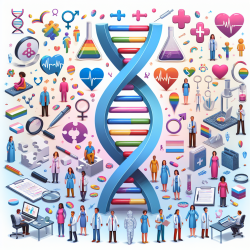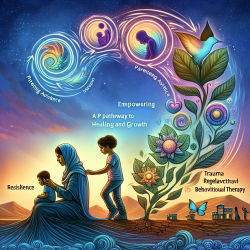Introduction
The intersection of genomics and gender diversity is an emerging area of research that holds significant potential for improving healthcare outcomes. The research article "Queering Genomics: How Cisnormativity Undermines Genomic Science" by Jamal et al. (2024) highlights how traditional binary views of sex and gender can lead to inaccurate data collection and research practices, ultimately affecting the quality of care for transgender and intersex individuals.
Key Findings
The article underscores several critical points:
- Binary Conceptions of Sex and Gender: Traditional views that categorize sex and gender as binary and mutually determined are scientifically flawed. These views exclude and stigmatize individuals whose identities do not conform to these binaries.
- Impact on Data Collection: Inaccurate data collection practices in genomics research can lead to false conclusions and hinder the development of evidence-based healthcare for transgender and intersex individuals.
- Clinical Implications: Poor data collection practices can result in inadequate healthcare for transgender and intersex individuals, as their unique needs are not accurately represented in research.
Recommendations for Practitioners
To improve the quality of care and research outcomes, practitioners should consider the following recommendations:
- Inclusive Data Collection: Implement data collection practices that recognize the complexity and fluidity of sex and gender. This includes using specific and precise measures that distinguish between different components of these concepts.
- Two-Step Approach: Use a two-step approach to gather data about both sex assigned at birth and current gender. This method helps identify individuals with transgender identities and experiences, providing a more accurate representation of diverse populations.
- Community Engagement: Engage LGBTQI+ communities in research design, priority setting, and dissemination of results. This ensures that research is conducted ethically and that findings are communicated responsibly.
Encouraging Further Research
While the recommendations above provide a starting point, further research is essential to refine data collection practices and improve healthcare outcomes for transgender and intersex individuals. Areas for future research include:
- Improving Measurement Tools: Develop and validate new tools for measuring sex, gender, and intersex characteristics that are inclusive and precise.
- Longitudinal Studies: Conduct longitudinal studies to assess the long-term effects of various treatments and interventions on transgender and intersex individuals.
- Policy Impact: Investigate the impact of inclusive data collection practices on public policy and healthcare delivery.
Conclusion
By adopting inclusive data collection practices and engaging with LGBTQI+ communities, practitioners can contribute to more accurate and equitable genomic research. This, in turn, will lead to better healthcare outcomes for all individuals, regardless of their sex or gender identity.
To read the original research paper, please follow this link: Queering genomics: How cisnormativity undermines genomic science.










